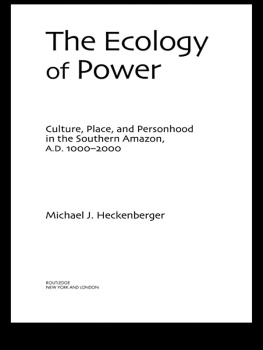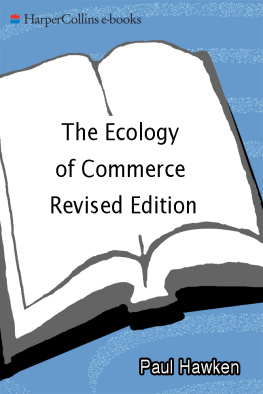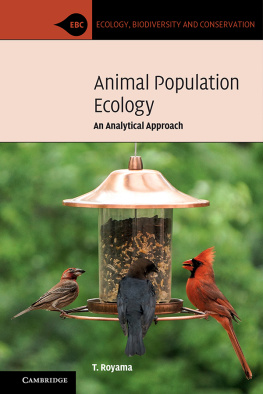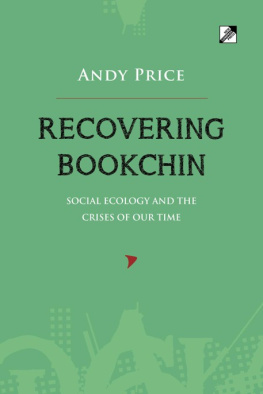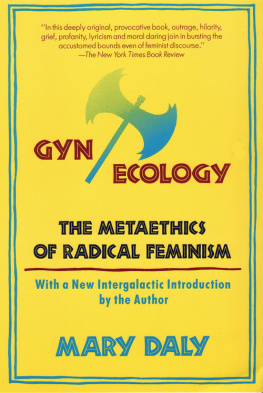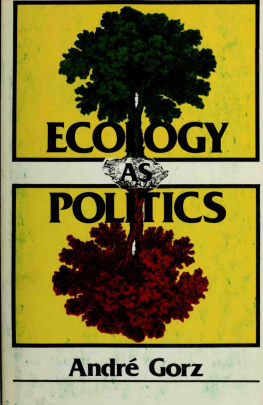MICHAEL J. HECKENBERGER - The Ecology of Power
Here you can read online MICHAEL J. HECKENBERGER - The Ecology of Power full text of the book (entire story) in english for free. Download pdf and epub, get meaning, cover and reviews about this ebook. year: 2011, publisher: Taylor & Francis (CAM), genre: Romance novel. Description of the work, (preface) as well as reviews are available. Best literature library LitArk.com created for fans of good reading and offers a wide selection of genres:
Romance novel
Science fiction
Adventure
Detective
Science
History
Home and family
Prose
Art
Politics
Computer
Non-fiction
Religion
Business
Children
Humor
Choose a favorite category and find really read worthwhile books. Enjoy immersion in the world of imagination, feel the emotions of the characters or learn something new for yourself, make an fascinating discovery.
- Book:The Ecology of Power
- Author:
- Publisher:Taylor & Francis (CAM)
- Genre:
- Year:2011
- Rating:3 / 5
- Favourites:Add to favourites
- Your mark:
- 60
- 1
- 2
- 3
- 4
- 5
The Ecology of Power: summary, description and annotation
We offer to read an annotation, description, summary or preface (depends on what the author of the book "The Ecology of Power" wrote himself). If you haven't found the necessary information about the book — write in the comments, we will try to find it.
The Ecology of Power — read online for free the complete book (whole text) full work
Below is the text of the book, divided by pages. System saving the place of the last page read, allows you to conveniently read the book "The Ecology of Power" online for free, without having to search again every time where you left off. Put a bookmark, and you can go to the page where you finished reading at any time.
Font size:
Interval:
Bookmark:

of Power
CRITICALPERSPECTIVES INIDENTITY, MEMORY,AND THEBUILTENVIRONMENT
HELAINESILVERMAN, UNIVERSITY OFILLINOIS ATURBANA-CHAMPAIGN, SERIESEDITOR
Places in Mind: Archaeology as Applied Anthropology
edited by Paul A. Shackel and Erve Chambers
Identity and Power in the Ancient Andes:
Tiwanaku Cities through Time
John Wayne Janusek
of Power
in the Southern Amazon,
A.D. 10002000

Published in 2005 by
Routledge
Taylor & Francis Group
270 Madison Avenue
New York, NY 10016
www.routledge-ny.com
Published in Great Britain by
Routledge
Taylor & Francis Group
2 Park Square
Milton Park, Abingdon
Oxon OX14 4RN
www.routledge.co.uk
Copyright 2005 by Taylor & Francis Group, a Division of T&F Informa.
Routledge is an imprint of the Taylor & Francis Group.
This edition published in the Taylor & Francis e-Library, 2005.
To purchase your own copy of this or any of Taylor & Francis or Routledges collection of thousands of eBooks please go to www.eBookstore.tandf.co.uk.
All rights reserved. No part of this book may be reprinted or reproduced or utilized in any form or by any electronic, mechanical or other means, now known or hereafter invented, including photocopying and recording or in any information storage or retrieval system, without permission in writing from the publishers.
All authors royalties from the sale of this book will be donated to Associao Indgena Kuikuro do Alto Xingu
Library of Congress Cataloging-in-Publication Data
Heckenberger, Michael.
The ecology of power : culture, place, and personhood in the southern Amazon, AD 1000-2000 /Michael J. Heckenberger.
p. cm. (Critical perspectives in identity, memory, and the built environment)
Includes bibliographical references and index. ISBN 0-415-94598-4 (hb : alk. paper) ISBN 0-415-94599-2 (pb : alk. paper)
1. Indians of South AmericaBrazilXingu River ValleyHistory. 2. Indians of South AmericaFirst contact with EuropeansBrazilXingu River Valley. 3. Indians of South AmericaBrazilXingu River ValleySocial life and customs. 4. ChiefdomsBrazilXingu River Valley. 5. Xingu River Valley (Brazil)History. 6. Xingu River Valley (Brazil)Colonization. 7. Xingu River Valley (Brazil)Social life and customs. I. Title. II. Series.
F2519.1.X56H43 2004
981.72dc22
2004015651
ISBN 0-203-48662-5 Master e-book ISBN
ISBN 0-203-57708-6 (Adobe eReader Format)
Dedicated to my parents,
Mary and Victor
and Afukak,
teacher, friend, and brother.
Amazonia is one of the last earthly frontiers of the modern imagination. New species, in complex webs of biodiversity, seem to turn up as quickly as biologists and botanists go out to look for them. Many scientists, in fact, feel that the cure for a whole host of world ills, everything from cancer to climate change and ecological well-being, may well be found as the Amazon yields its secrets. It is among a handful of places where isolated indigenous groups still stride into the consciousness of the civilized world (the distant second being New Guinea, according to the New York Times Magazine, October 31, 1999). It is no surprise the region is shrouded in mystery, because the lush tropical forests that dominate this vast area, which is easily the size of Europe, pose significant challenges to intruders: explorers, colonists, and scientists alike. It is a place where Western travelers and voyeurs still hope to encounter refuges of unknown or extinct species, untouched islands of natural biodiversity, untapped fonts of valuable resources, as well as our own alter egos, isolated pockets of Stone Age tribes, something preserved from ancient times: lost worlds.
It is ironic that we Western observers often look to Amazonia to encounter our living ancestors, some archaic state of nature or orientation of society, because the pastthe Amazonian pastis an enigma. Recent scientific attempts to characterize, classify, and catalogue the present nature of the Amazon forest or its people too frequently assume that present conditions characterized the past, creating an image of a primordial nature or human condition. Yet, such assumptions generally lack supporting evidence; all too often they lack even a shred of corroborating history or archaeology. Even so, old views die hard, and the centuries-old portrayals of the tropics as a torrid zone inhabited by primitive peoples and filled with jungle still pervade the scientific and popular imagination. We see them time and time again: an early condition of nature and humanity, a Garden of Eden, or a Green Hell.
The majority of native Amazonians today live at the margins of the increasingly globalized world, but was it always so? Was Amazonia always so marginal, held in place by some ecological or social imperative and distanced from the pulses of imperialism that have washed across the continent for over five hundred years? The point of view taken in this work is that native Amazonian societies, considered against the backdrop of a deep history that extends beyond 1492, were far more advanced, in terms of their cultural achievements than typically assumed. Like other Native American peoples, Amazonians faced centuries of colonialism, and the size and often fugitive nature of social groups in the twentieth century must be seen as the result of this European colonialism impacted heavily upon the indigenous peoples of the region, no less so than elsewhere, but we are still ill-prepared to consider the magnitude of colonialisms impact or, particularly, of what came before. Certainly, nothing as massive as the Inka empire ever emerged here, but the long popular view that an adaptation to the environment or some social contract prevented population growth or social complexity also is no longer tenable. Amazonian civilizations were every bit as complex, in terms of actual human lives and the changes they experienced, as temperate Europe, North America, the Pacific Islands, and Africa. Civilization in Amazonia over the past few thousand years must be measured on its own terms, and not on the Procrustean bed of Western historical experience, in comparison to European or Mediterranean examples of towns and cities, temples, palaces, and marketplaces.
Writing Amerindians as active agents in complex histories, rather than as pristine bands and tribes who are today caught, like gamebirds, in the trap of our mechanistic civilization, (Lvi-Strauss 1961: 42), has gained momentum in the 1980s and 1990s. Amazonia boasts a wide range of ethnographic studies from the late twentieth century that permit anthropologists to consider in detail the native peoples of Amazonia during this recent episode in their histories. Still, we know relatively little about their histories prior to this time, particularly their deep histories. The situation is compounded by the fact that in those few areas where we do know something about archaeology or early colonial periods, there are generally no indigenous populations, and detailed studies bridging this gap are generally lacking in regional anthropology.
Font size:
Interval:
Bookmark:
Similar books «The Ecology of Power»
Look at similar books to The Ecology of Power. We have selected literature similar in name and meaning in the hope of providing readers with more options to find new, interesting, not yet read works.
Discussion, reviews of the book The Ecology of Power and just readers' own opinions. Leave your comments, write what you think about the work, its meaning or the main characters. Specify what exactly you liked and what you didn't like, and why you think so.

